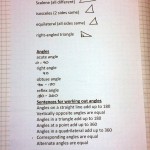Author's details
Name: Rachel Hawkes
Date registered: December 12, 2011
Latest posts
- Meeting new classes — January 5, 2014
- Developing Resilience (a Geography department-led initiative) — June 8, 2013
- Pointless Evidence — March 7, 2013
- Evidence Bingo — March 2, 2013
- Essay-writing Consequences – Mike Bigg — October 24, 2012






